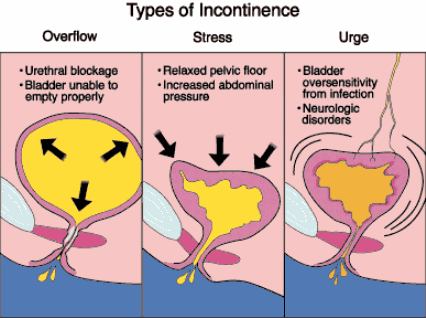Incontinence in Men: Understanding and Managing Bladder Issues
Incontinence is a common but often misunderstood issue that affects many men as they age. It can lead to significant lifestyle changes, emotional distress, and social isolation. Understanding the causes and management strategies for male incontinence is crucial for maintaining a good quality of life. This article explores the various aspects of incontinence in men, including its causes, types, and effective management options.
Understanding Incontinence in Men
Incontinence in men refers to the involuntary loss of bladder control, resulting in accidental leakage of urine. This condition can manifest in various forms, from occasional dribbling to complete loss of control. Understanding the underlying causes is essential for effective management.
Common Causes
- Prostate Issues: Enlarged prostate or prostate surgery (such as radical prostatectomy) can lead to incontinence. The prostate’s proximity to the bladder makes it a common factor in bladder control problems.
- Neurological Conditions: Conditions like multiple sclerosis, Parkinson’s disease, and spinal cord injuries can interfere with the nerves that control bladder function.
- Diabetes: Men with diabetes may experience nerve damage (diabetic neuropathy) that affects bladder control, leading to incontinence.
- Age: As men age, the bladder’s capacity and muscle tone may decrease, increasing the likelihood of incontinence.
- Lifestyle Factors: Obesity, smoking, excessive alcohol consumption, and certain medications can contribute to bladder control issues.
Types of Incontinence
Understanding the different types of incontinence can help in identifying the most effective management strategies:
- Stress Incontinence: Occurs when physical activities like coughing, sneezing, or exercising put pressure on the bladder, causing leakage.
- Urge Incontinence: Characterized by a sudden, intense urge to urinate, often resulting in leakage before reaching the bathroom.
- Overflow Incontinence: This occurs when the bladder doesn’t empty completely, leading to frequent dribbling of urine.
- Functional Incontinence: Related to physical or mental impairments that prevent timely access to the bathroom, such as arthritis or dementia.
Managing Male Incontinence
Managing incontinence in men involves a combination of lifestyle changes, medical treatments, and support products. Here are some effective strategies:
1. Lifestyle Modifications
- Dietary Changes: Reducing caffeine, alcohol, and spicy foods can help minimize bladder irritability. Staying hydrated while managing fluid intake is crucial.
- Weight Management: Losing excess weight can relieve pressure on the bladder and improve control.
- Pelvic Floor Exercises: Kegel exercises strengthen the pelvic floor muscles, which can enhance bladder control.
2. Medical Treatments
- Medications: Depending on the type of incontinence, medications may help improve bladder control. Anticholinergic drugs are often prescribed for urge incontinence.
- Physical Therapy: A pelvic floor therapist can provide tailored exercises and techniques to strengthen the pelvic muscles.
- Surgery: In severe cases, surgical options may be available, such as bladder neck suspension or artificial urinary sphincters.
3. Absorbent Products
Using absorbent products designed for men, such as urological pads or adult diapers, can provide comfort and confidence. These products are discreet, offering protection while allowing men to engage in daily activities without fear of leakage.
4. Bladder Training
Bladder training techniques, including scheduled bathroom visits and gradually increasing the time between urination, can help improve control and reduce urgency.
Incontinence in men is a common issue that can be effectively managed with the right understanding and resources. By recognizing the causes, types, and available management strategies, men can regain control over their lives and improve their quality of life. Whether through lifestyle changes, medical interventions, or the use of absorbent products, support is available. If you or a loved one is experiencing incontinence, it is important to consult a healthcare professional for personalized advice and treatment options. With the right approach, managing bladder issues can lead to a more fulfilling and confident life. Take care of your elderly relatives if they have to dress a wound. Use only quality wound dressing products.
Some funeral agencies offer different services like care for elderly.
















